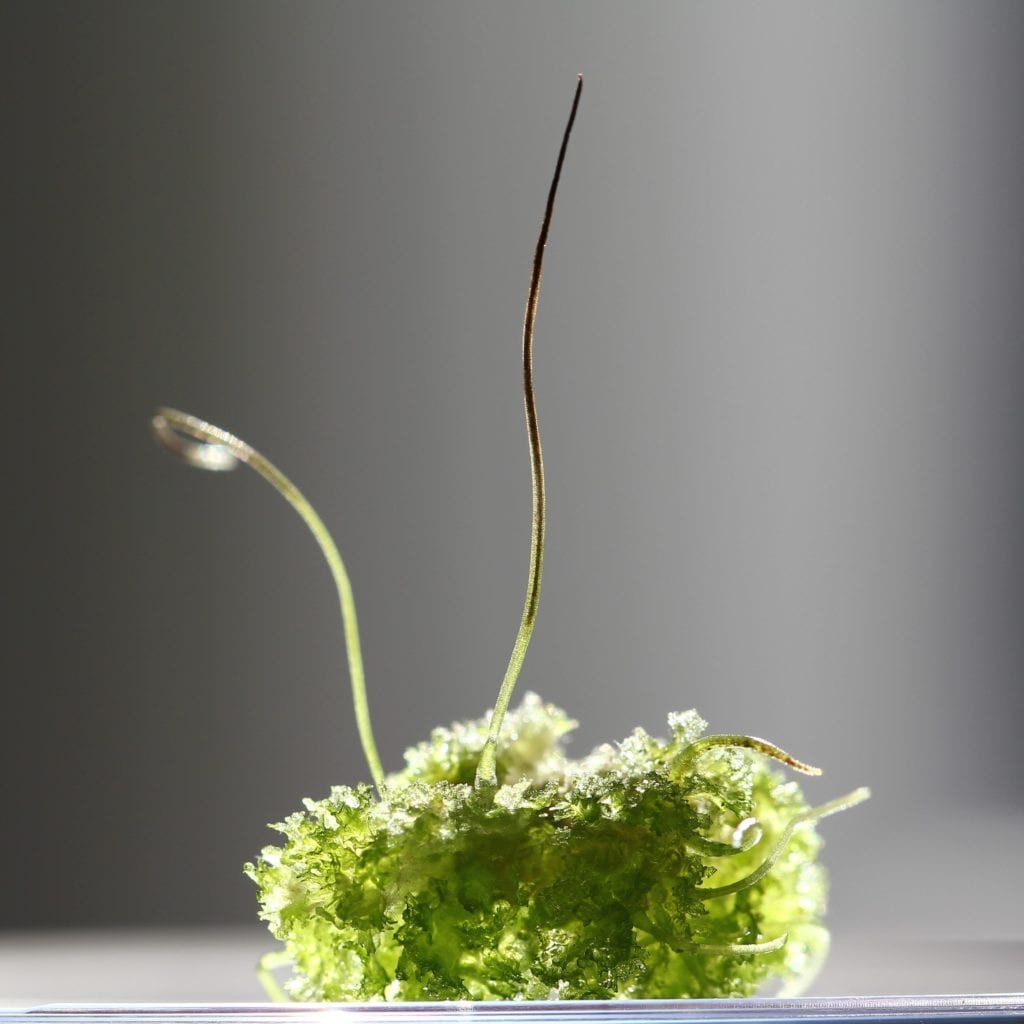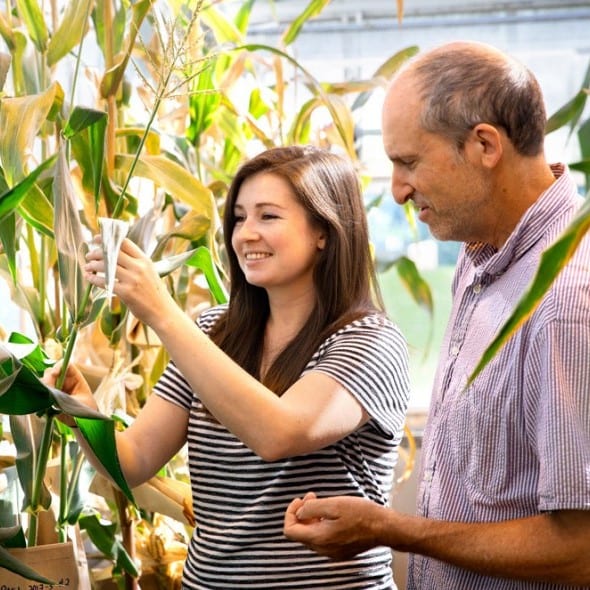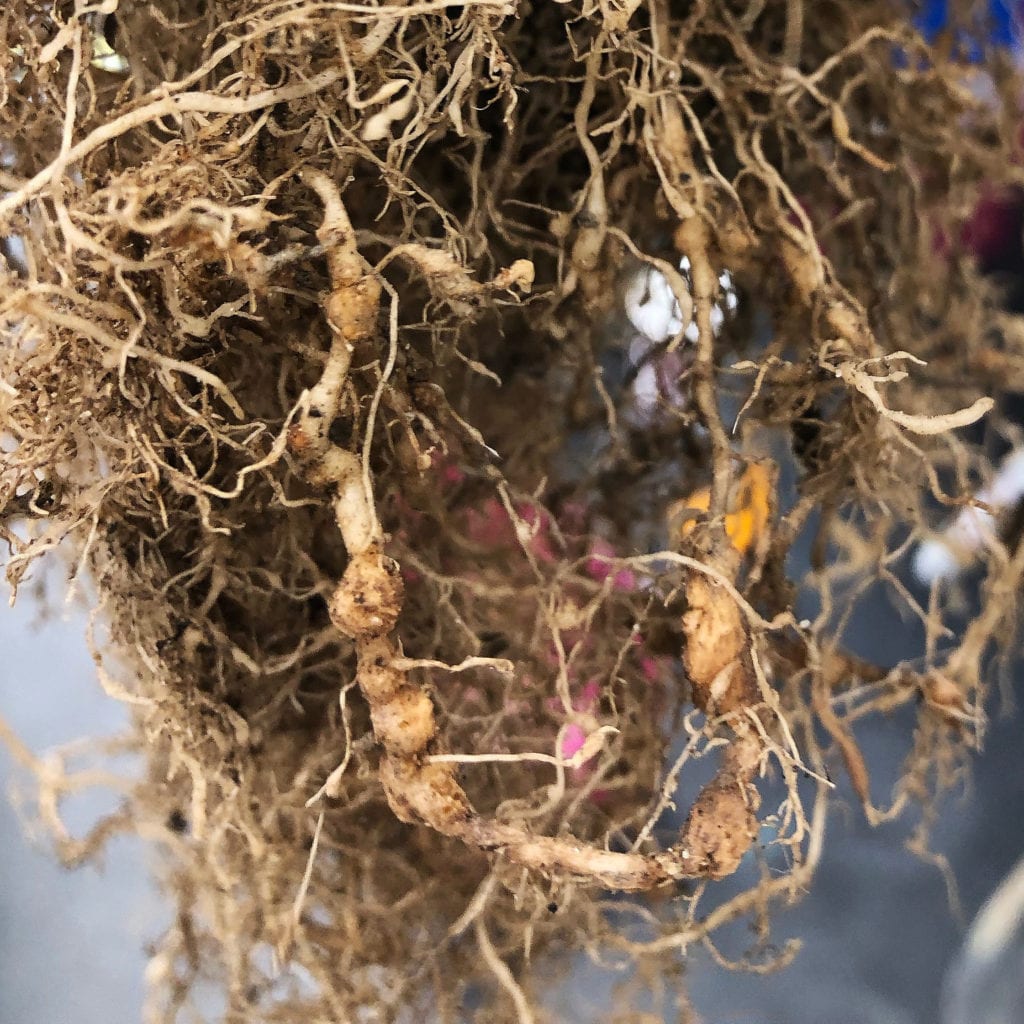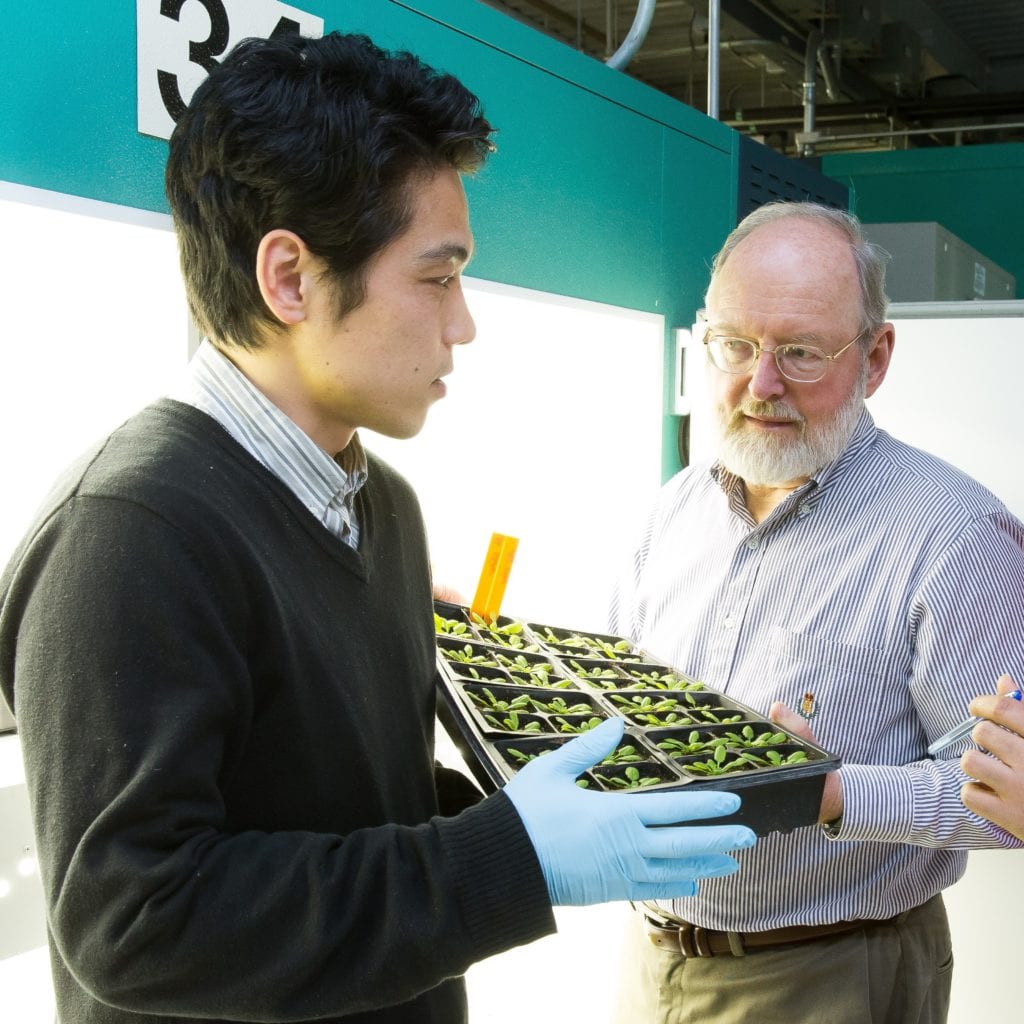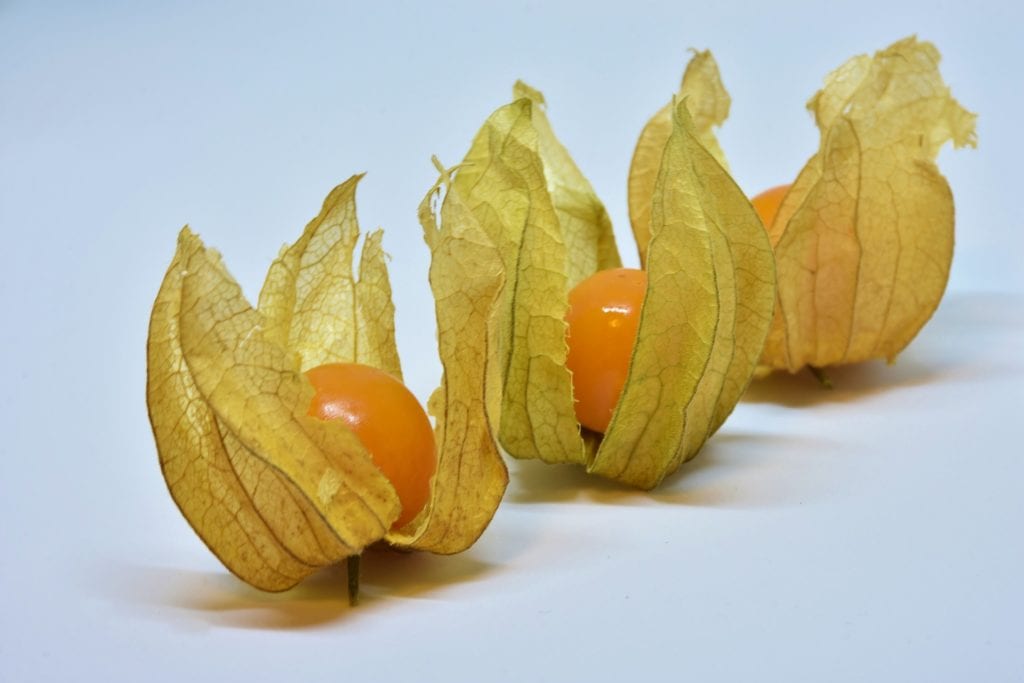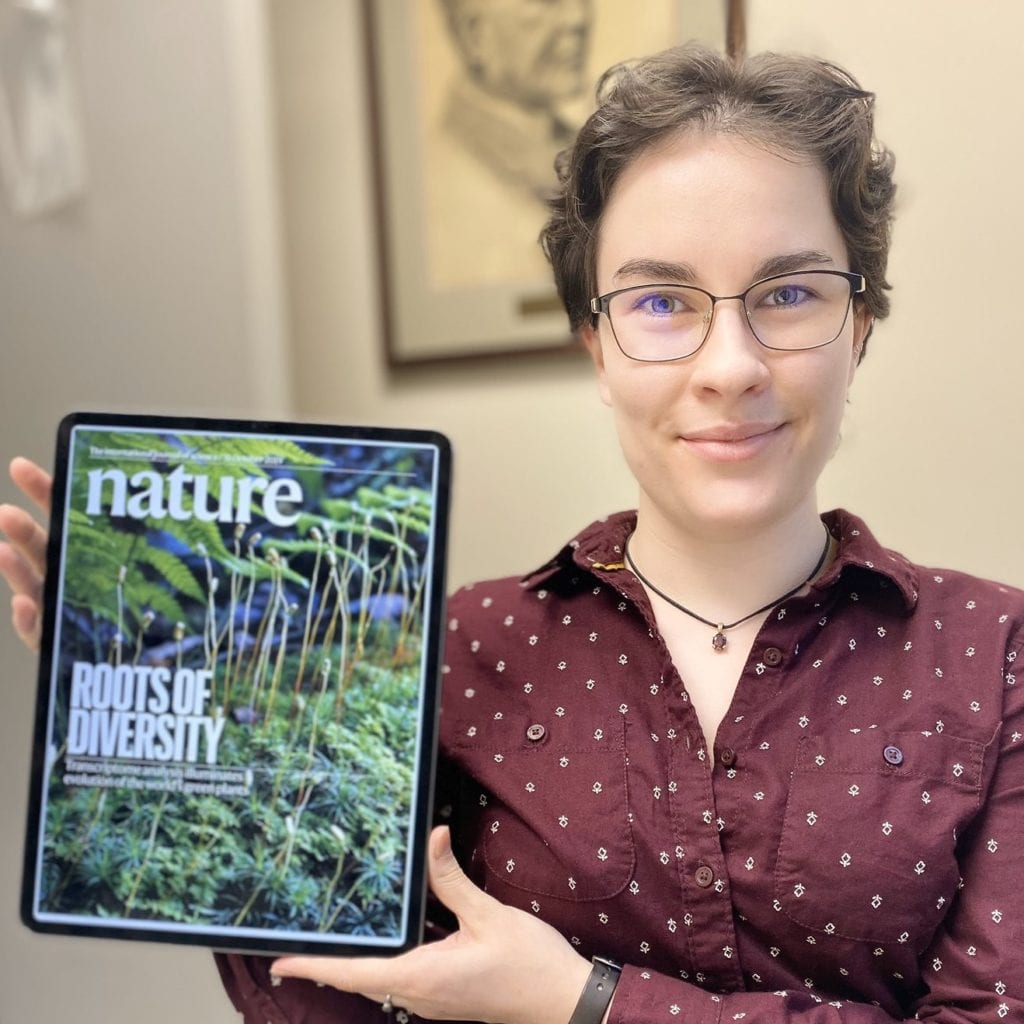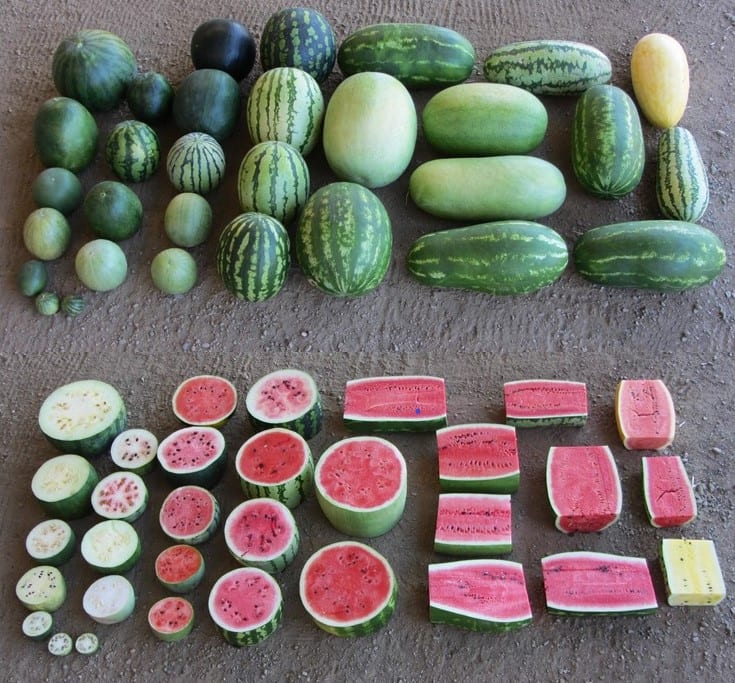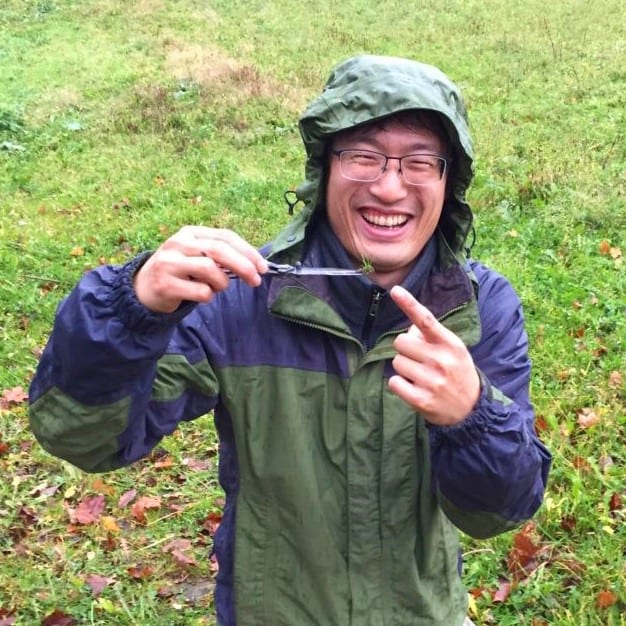Hornwort Genomes Could Lead to Crop Improvement
Some 500 million years ago – when our continents were likely connected in a single land mass and most life existed underwater – hornworts were one of the first groups of plants to colonize land. But biologists have never understood much about the genetics of these...
Speedy Recovery: New Corn Performs Better in Cold
Nearly everyone on Earth is familiar with corn. Literally. Around the world, each person eats an average of 70 pounds of the grain each year, with even more grown for animal feed and biofuel. And as the global population continues to boom, increasing the amount of...
Plants Found to Speak Roundworm’s Language
Nematodes are tiny, ubiquitous roundworms that infect plant roots, causing more than $100 billion in crop damage worldwide each year. New research has found that plants manipulate the worms’ pheromones to repel infestations, providing insights into how farmers...
Reflections on Mary Clutter
We at BTI were deeply saddened to hear of the passing of Dr. Mary Clutter on December 8. Many know Mary from her time at the National Science Foundation, where she began as Program Director in the 1970s, working her way up to become Assistant Director for the...
Aspirin-Like Compounds Could Treat Numerous Human Diseases
People have used aspirin to treat pain, fever and inflammation for more than a century, and the drug is also used to reduce the risk of strokes, heart attacks and some cancers. An estimated 100 billion aspirin tablets are taken worldwide each year, but how it works...
Groundcherries: a New Treat
Groundcherries: a New Treat by Carol Bayles, Master Gardener, with input from Esperanza Shenstone, Boyce Thompson Institute Note: this article originally appeared in the Cornell Cooperative Extension Garden Post newsletter Most gardeners love to try new things and...
BTI Researchers Publish High-Impact Nature Papers
We would like to congratulate a pair of BTI faculty members who recently published high-impact research papers in the prestigious research journal Nature. Frank Schroeder and colleagues discovered the first clues on how gut health influences brain health. Published...
Harvesting Genes to Improve Watermelons
When many people think of watermelon, they likely think of Citrullus lanatus, the cultivated watermelon with sweet, juicy red fruit enjoyed around the world as a dessert. Indeed, watermelon is one of the world’s most popular fruits, second only to tomato – which...
BTI’s Michelle Heck and Joyce Van Eck Guest on Podcasts
Boyce Thompson Institute is happy to share that two of our faculty members recently appeared as guests on popular podcasts. The content of these podcasts illustrate the breadth of research being done at the Institute to help increase global food security, improve...
BTI Researchers Unlocking Hornworts’ Secrets
Hornworts are a little-studied, ancient group of plants with some very unique biology, including their methods of securing carbon and nitrogen. Unlocking these secrets may help researchers boost agricultural output and use less synthetic fertilizer, as well as...

